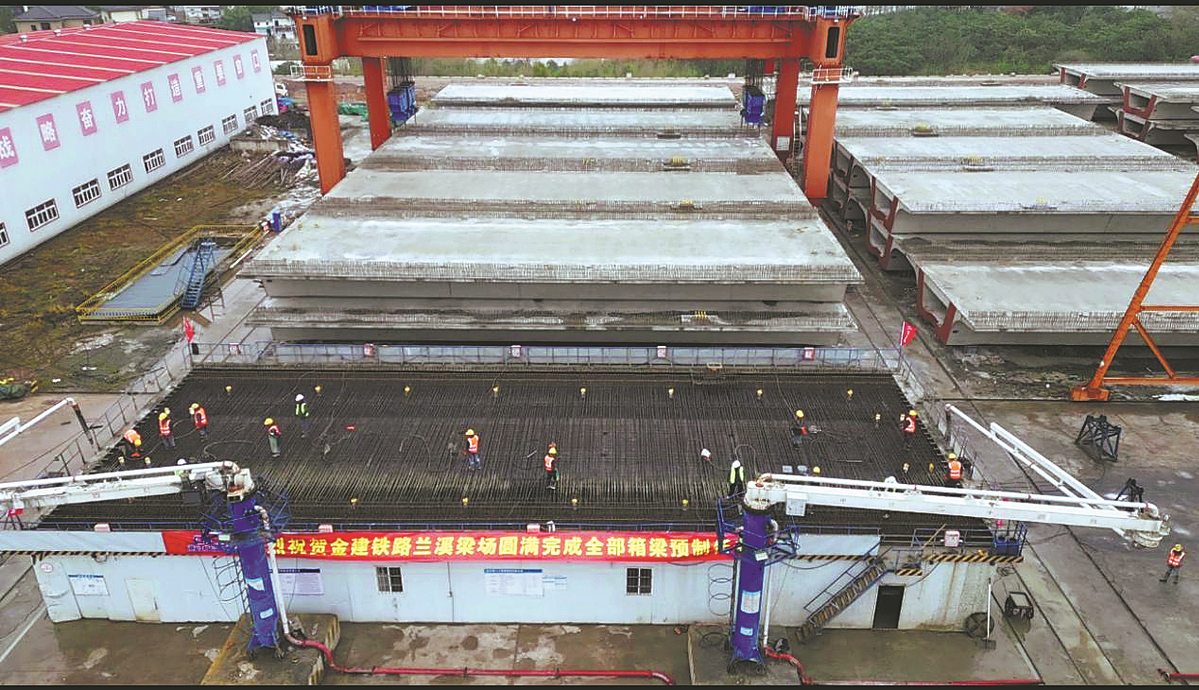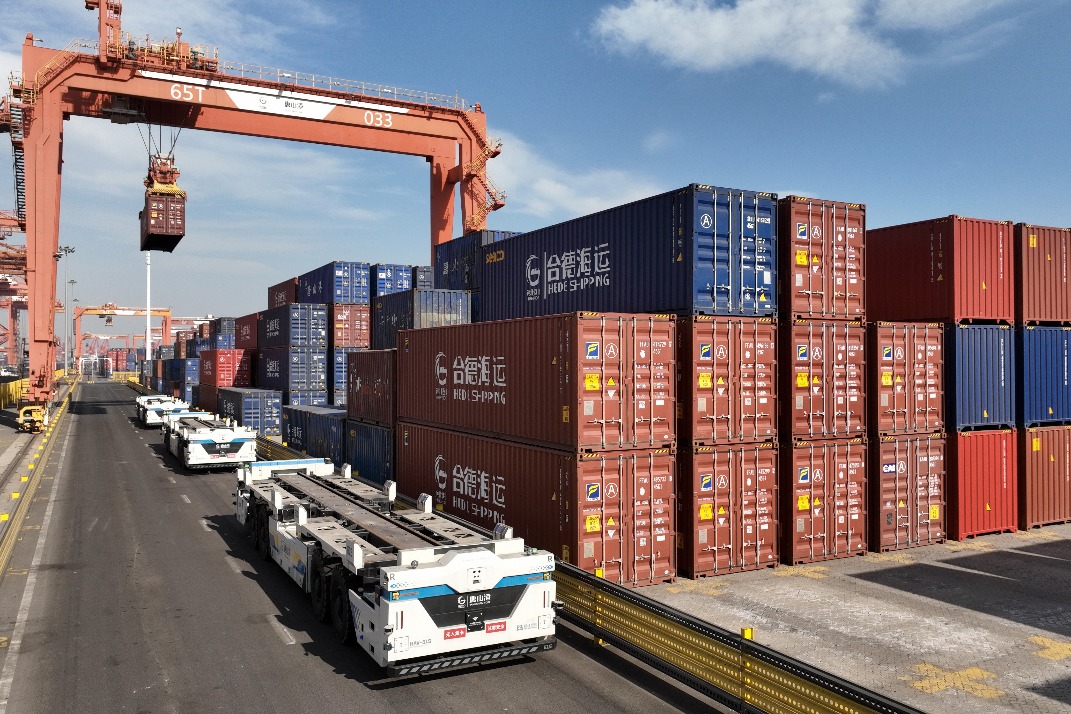For China, quiver full of anti-protectionist arrows


Despite headwinds from Washington's "reciprocal tariff" strategy, China's economy is expected to remain on a steady track given its advantages such as competitive manufacturing, large market scale and sufficient space from using more policy tools — which should be given key roles at present — to hedge against the impact brought about by external challenges, recent research shows.
The US tariff policy has caused widespread harm not only to itself — with higher stagnation risks and fallout on US dollar assets — but also to the global trading system. In this case, China needs to, and is able to, maintain its economy on a steady track by enhancing policy support to cushion against external disruptions, according to a recent research report by CICC Global Institute (CGI), a research body under China International Capital Corp Ltd.
CGI said in the report that it sees room for stronger policy support to stabilize expectations, protect market players, expand domestic demand and improve people's livelihoods, including expanding central government leverage and lowering interest rates.
The efforts that China has made to sharpen its technological edge on the supply side and prioritize consumption on the demand side are accelerating the nation's steps in its shifting development pattern processes, wherein more policies to expand domestic demand are becoming increasingly critical, the report added.
When asked what measures China could take to manage the consequences of the US tariff moves and ensure economic momentum, Long Chaocan, an investment consultant with China Galaxy Securities, said: "The nation, on the one hand, has charted a clear path as was described in this year's Government Work Report to boost domestic demand with efforts including increasing incomes and furthering consumer goods trade - in programs. On the other hand, it plans more steps to build its unified national market, such as widening market access and attracting more investment. All these efforts are advance moves to mitigate damage from external turbulence.
"In addition, with its competitive manufacturing sector and huge consumer base of 1.4 billion people, China — if supported by proper and adequate policy support — is capable of minimizing the impact of the US tariffs on its economy, with moves such as improving credit services to shore up market confidence and boosting infrastructure investment to stabilize industry chains and employment."
State-owned builders are undertaking vital infrastructure projects, which is in harmony with the nation's call also made in this year's Government Work Report to upgrade rural infrastructure and public services such as water, electricity and gas supplies, roads and railways, and mail and communications services.
Major breakthroughs were recently achieved in the construction of the Jinhua-Jiande High-speed Railway, said China Railway 24th Bureau Group Corp, builder of the local railway in Zhejiang province.
CR24G said it has finished building all 348 box girders for the HSR, of which bridge and tunnel projects make up over 86 percent of the total workload. Conclusion of the box-girder building phase on schedule marks a milestone in railway construction, as it lays a solid foundation for upcoming tasks such as beam installation and track laying.
In addition, the builder has also installed all 36 support cables on the Xin'an River railway bridge, a major project on the Jinhua-Jiande Railway. With a main span of 216 meters, the cable-stayed bridge project team applied BIM (building information modeling) technology and intelligent monitoring systems to coordinate stress-bearing of 2,196 steel strands.
The Jinhua-Jiande HSR will form a key part of the Huangshan to Jinhua railway, and enhance Zhejiang's railway network's role in the Yangtze River Delta transportation network, improving railway transportation infrastructure in the nation's economic heartland, the State builder said.
zhuangqiange@chinadaily.com.cn





































